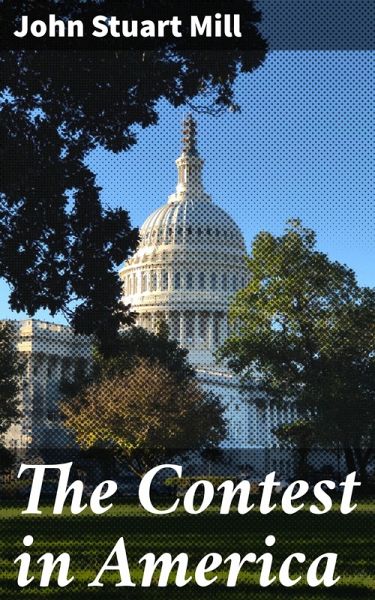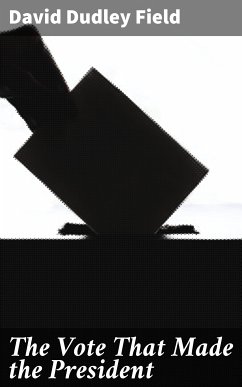
The Contest in America (eBook, ePUB)
Freedom and Conflict: Insights on Civil War and Democracy from a 19th Century Thinker
Versandkostenfrei!
Sofort per Download lieferbar
1,99 €
inkl. MwSt.
Weitere Ausgaben:

PAYBACK Punkte
0 °P sammeln!
In "The Contest in America," John Stuart Mill offers a profound analysis of the American Civil War, framing it as a pivotal struggle not just for the nation but for the moral future of liberty and democracy. Mill's literary style is characterized by rigorous argumentation and eloquent prose, reflecting his philosophical grounding in utilitarianism and liberal thought. He navigates complex themes of freedom, equality, and governance, positing that the war represents a critical juncture for understanding the interplay between individual rights and societal obligations, set against the backdrop o...
In "The Contest in America," John Stuart Mill offers a profound analysis of the American Civil War, framing it as a pivotal struggle not just for the nation but for the moral future of liberty and democracy. Mill's literary style is characterized by rigorous argumentation and eloquent prose, reflecting his philosophical grounding in utilitarianism and liberal thought. He navigates complex themes of freedom, equality, and governance, positing that the war represents a critical juncture for understanding the interplay between individual rights and societal obligations, set against the backdrop of 19th-century political discourse. John Stuart Mill, a prominent philosopher and political economist of the Victorian era, drew upon his extensive knowledge of political theory and human rights when writing this work. His own advocacy for social reform and his belief in the necessity of progress in the face of societal injustices informed his analysis of the American experience. Having been influenced by both the Enlightenment ideals and the tumultuous political climate of his time, Mill was uniquely positioned to critique the events transpiring across the Atlantic. This text is essential reading for anyone interested in the philosophical underpinnings of modern democracy and social justice. Mill'Äôs insights are not only historically significant but resonate with contemporary discussions surrounding freedom and governance. "The Contest in America" invites readers to reflect on the moral dimensions of conflict and the enduring struggle for a more equitable society.
Dieser Download kann aus rechtlichen Gründen nur mit Rechnungsadresse in A, B, BG, CY, CZ, D, DK, EW, E, FIN, F, GR, H, IRL, I, LT, L, LR, M, NL, PL, P, R, S, SLO, SK ausgeliefert werden.













